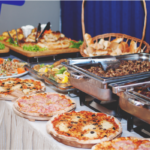In today’s digital age, social media has become a powerful tool for promoting events, especially in Kenya, where platforms like Facebook, Instagram, Twitter, and LinkedIn have a significant user base. Whether you’re organizing a corporate event, a concert, a product launch, or a community gathering, leveraging social media can help you reach a broader audience, engage with potential attendees, and create buzz around your event. This article provides a comprehensive guide on how to effectively promote your event on social media in Kenya, offering practical tips and strategies to maximize your reach and impact.
Understanding Your Target Audience
Before you begin promoting your event on social media, it’s essential to understand your target audience. Who are they? What are their interests, demographics, and online behaviors? In Kenya, social media usage varies across different age groups and regions. For example, younger audiences may be more active on Instagram and TikTok, while professionals might prefer LinkedIn or Twitter.
By identifying your target audience, you can tailor your social media strategy to meet their preferences. Create audience personas that detail the characteristics of your ideal attendees, including their age, location, gender, and interests. This will guide your content creation, platform selection, and advertising efforts, ensuring that your promotions resonate with the right people.
Choosing the Right Social Media Platforms
Not all social media platforms are created equal, and each has its unique strengths. To promote your event effectively, choose platforms that align with your target audience and event goals. In Kenya, Facebook remains the most popular platform, with a diverse user base that spans across various demographics. It’s ideal for creating event pages, sharing updates, and running targeted ads.
Instagram is another powerful platform, especially for visually-driven events like concerts, exhibitions, and fashion shows. The platform’s emphasis on images and videos makes it perfect for showcasing the highlights of your event, from behind-the-scenes preparations to teasers and live streams. Twitter, with its real-time nature, is excellent for generating conversations around your event, using hashtags to increase visibility.
For professional events like conferences and seminars, LinkedIn is the go-to platform. It allows you to connect with industry professionals, share thought leadership content, and build credibility. Additionally, platforms like WhatsApp and Telegram are increasingly popular for creating event groups, sharing updates, and engaging directly with attendees.
Creating Engaging Content
Content is king when it comes to social media promotion. The type of content you create can make or break your event’s success. Start by developing a content calendar that outlines what you’ll post, when, and on which platforms. This ensures consistency and helps you stay organized.
Visual content, such as images, videos, and infographics, tends to perform well on social media. Use high-quality images to showcase your event venue, speakers, or performers. Short video clips or teasers can create excitement and anticipation. Live streaming is another powerful tool, allowing you to engage with your audience in real-time and give them a taste of what to expect at the event.
In addition to visuals, create informative and engaging posts that provide value to your audience. Share behind-the-scenes content, interviews with key participants, or fun facts about the event. Use compelling captions that encourage interaction, such as asking questions or prompting users to tag friends who might be interested in attending.
Utilizing Hashtags
Hashtags are essential for increasing the visibility of your event on social media, particularly on platforms like Twitter and Instagram. Create a unique and memorable event hashtag that encapsulates the essence of your event. This could be the event name, a catchy phrase, or a combination of both.
Encourage your audience to use the hashtag when posting about the event, whether they’re sharing their excitement, participating in contests, or posting photos during the event. This not only amplifies your reach but also creates a sense of community among attendees. Monitor the hashtag regularly to engage with users, answer questions, and repost user-generated content.
In addition to your event-specific hashtag, use popular and relevant hashtags to reach a broader audience. For example, if you’re hosting a tech conference in Nairobi, hashtags like #NairobiEvents, #TechInKenya, or #StartupKE can help you connect with individuals interested in the tech industry.
Leveraging Influencers and Partnerships
Influencer marketing is a growing trend in Kenya, and it can be a valuable strategy for promoting your event. Identify influencers who align with your event’s theme and target audience. These could be bloggers, social media personalities, or industry experts with a significant following. Collaborate with them to create sponsored posts, videos, or stories that promote your event to their audience.
Partnerships with brands, organizations, or media outlets can also enhance your event’s visibility. For example, if you’re hosting a music festival, partnering with a popular radio station or music brand can help you reach a larger audience. Joint promotions, giveaways, or sponsored content can create a buzz and attract more attendees.
Running Targeted Ads
While organic reach is important, running targeted ads can significantly boost your event promotion efforts. Social media platforms like Facebook and Instagram offer robust advertising tools that allow you to target specific demographics based on age, location, interests, and behaviors.
Create visually appealing ad creatives that highlight the key aspects of your event, such as the headline acts, guest speakers, or unique experiences. Use clear and compelling call-to-action buttons like “Get Tickets” or “RSVP Now” to encourage users to take action. Monitor the performance of your ads regularly and make adjustments as needed to optimize results.
Engaging with Your Audience
Engagement is key to building a loyal and excited audience for your event. Respond to comments, messages, and mentions promptly, and show appreciation for those who share or promote your event. Consider hosting interactive sessions, such as Q&As or polls, to involve your audience in the event planning process.
You can also create a sense of exclusivity by offering early bird tickets, discounts, or special offers to your social media followers. Contests and giveaways are another effective way to generate excitement and encourage user participation. For example, you could run a contest where participants stand a chance to win free tickets by sharing your event page or tagging friends.
Tracking and Measuring Success
To ensure that your social media efforts are paying off, it’s important to track and measure the success of your campaigns. Use analytics tools provided by social media platforms to monitor key metrics such as reach, engagement, clicks, and conversions. Google Analytics can also provide insights into how social media traffic is impacting your event website.
By analyzing this data, you can identify what’s working and what needs improvement. For instance, if you notice that video content is driving higher engagement than static images, you can adjust your content strategy accordingly. Regularly reviewing your performance metrics allows you to optimize your efforts and ensure that you’re maximizing your return on investment.
Post-Event Engagement
Your social media promotion doesn’t end when the event is over. Post-event engagement is crucial for maintaining the momentum and building relationships with your audience for future events. Share highlights, photos, and videos from the event, and thank attendees, sponsors, and partners for their support.
Encourage attendees to share their experiences using your event hashtag, and repost user-generated content to extend the event’s visibility. Collect feedback through polls or surveys to learn what worked well and what could be improved. This not only shows that you value your audience’s input but also provides valuable insights for planning your next event.
Conclusion
Promoting your event on social media in Kenya requires a strategic approach that combines understanding your audience, creating engaging content, leveraging influencers, and utilizing targeted ads. By following these steps and continuously engaging with your audience, you can create a buzz around your event, drive attendance, and ensure its success. Social media is a powerful tool in today’s event promotion landscape, and when used effectively, it can help you reach new heights with your events.





